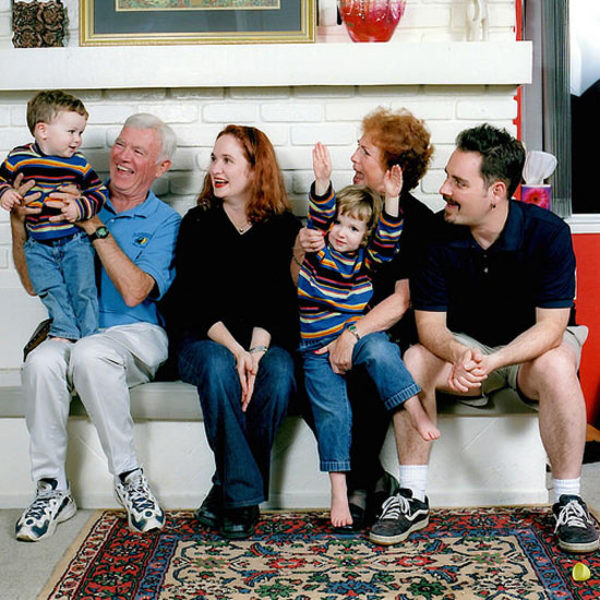This post is about the hundreds and thousands of autistic people who are misdiagnosed everyday by psychiatrists, psychologists, and other professionals.
Search Results for: diagnosis
When we deny the validity of self diagnosis, we fail to recognize how broken health care systems can be. We effectively restrict our support to those privileged to afford a formal diagnosis.
My adult autism diagnosis was, it still is, mind boggling to me. Perhaps to those of you who know me. Perhaps not. To have a paradigm shift in self reflection, and in reflection about my personal relationships. My memories now telling me different stories.
If your child has recently been diagnosed with autism, as my son was in 2003, here’s what I want you to know: Learn from me, don’t be me.
Since I didn’t know I was autistic, I just assumed there was something wrong with me and that I deserved what I got. I learned that intrinsically, I was less than a person, since I didn’t have a framework to tell me otherwise.
Andrea Michael www.andreamichael.art Django of Cacharel [image: Black-and-white drawing of a dark horse wearing a bridle, with a windblown mane.] I wasn’t prepared for the imposter syndrome that set in after my autism diagnosis. Why? Possibly because, after my diagnosis, I scoured the Internet for autism material, found too many opinions that my version of autism wasn’t “real autism” — and heard more often than not that if I was late diagnosed, that meant I was at the very edge of the diagnosis, just a mild case with no “real” challenges. At the time of this writing, I am in my thirties. I was diagnosed on the autism spectrum three years ago, after seeking answers for troubles that had been ramping up since my childhood. My diagnosis of extreme chronic anxiety as a teen, then one of depression (later extreme chronic depression) in my twenties, while true and correct, were…
I am very grateful to have this new piece of information about myself. I don’t consider my diagnosis to be an answer to all my life’s problems, nor do I consider it to be a deficit. What I see it as is a new lens to see my behavior through.
S. Begeer VU University, Amsterdam Autism is a “man’s disorder” But what about the “Horse Girl” and the “Rain Women”? Some studies reports that females with autism Show more cognitive impairments Have worse social and communicative functioning Have a higher rate of intellectual disability: Increased self-destructive behavior, more dementia But other studies have shown that core autism symptoms do not vary by sex: No increase in psychiatric comorbidity Core symptoms of autism are relatively equal What are factors in the identification of females with autism? Parental expectations may be involved (higher social expectations) Clinicians expectations may be involved as well There is a risk of delayed or missed diagnoses in females Early identification is crucial From the abstract: imfar.confex.com/imfar/2011/webprogram/Paper8847.html Survey data were collected in the Netherlands from 2275 individuals with ASD. Timing and procedure of diagnosis were compared for males and females with autism, Asperger’s syndrome and PDDNOS. Results: Among…
Sharon Morris sharon-theawfultruth.blogspot.com I’m a new arrival to Planet ASD. I use this analogy deliberately as it does feel as though I have stepped through, or fallen into, a wormhole opening to another universe. I wonder where all these research papers, all these treatment models, all these parents and children, and their courageous stories have been. Where have they been hiding? How was I so blind to this ever-expanding ASD community apparently living right under my nose? Sure, I’d heard of autism. Though I hadn’t given it a lot of thought. And when it had crossed my mind in years past I considered the possibility of an autistic child with ignorant terror. Now I am a new, life member of the autism community. Prior to Harri’s ASD diagnosis two weeks before his second birthday my mummy mantra was ‘This too shall pass.’ This idea was a lifeline during his incredibly…
Mir Kamin Woulda Coulda Shoulda (wouldashoulda.com) For the first time in a very long time, it felt like things were okay. Good, even. Things were going to be great, in fact, and once I got the kids settled in to our new town, new house, new life … things would only get better. So there I was in the office of the one and only psychiatrist in town our new health insurance would pay for, who would also see children younger than twelve. My son was only seven, but for the past year he’d done well on an anti-depressant to help control his anxiety. I’d had reservations about medicating him — of course I did — but it helped. It helped a lot, actually. All I needed from this doctor was a new prescription for the medication that we already knew was working fine. I’d brought his medical records and…






